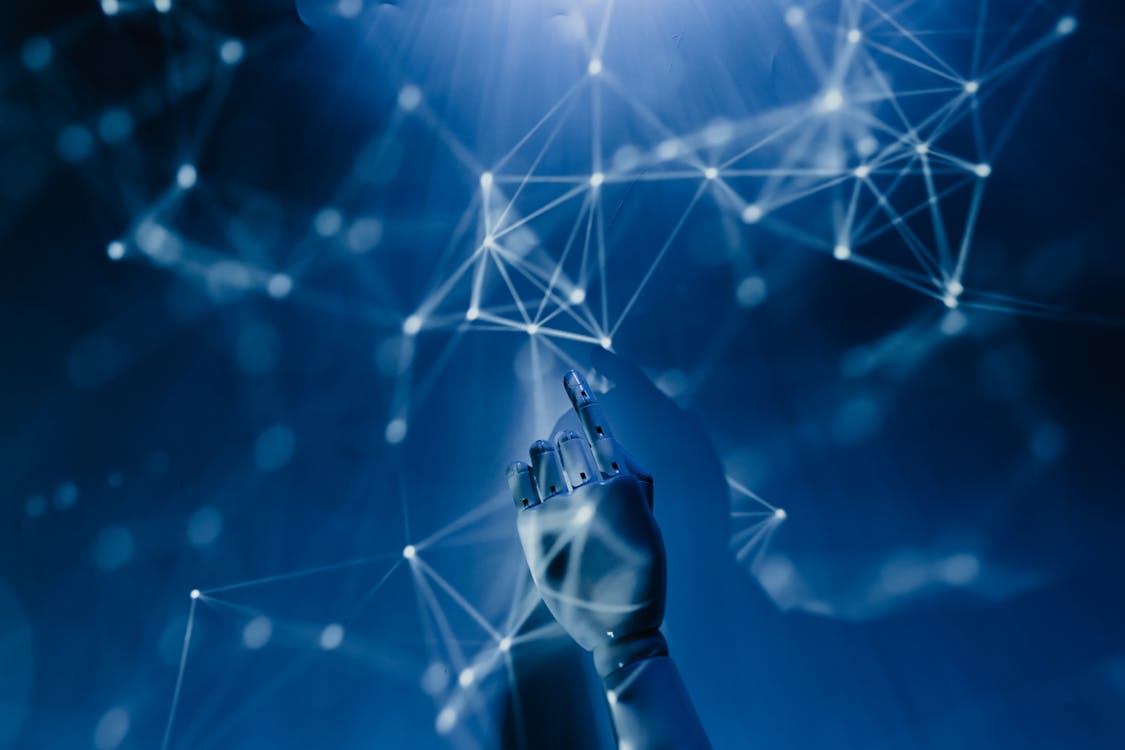Artificial Intelligence (AI) has transitioned from being a futuristic concept in sci-fi movies to an integral part of our daily existence. From virtual assistants in our smartphones to sophisticated algorithms driving entire industries, AI is reshaping how we live, work, and interact with the world. Let’s explore the ways AI is transforming our lives and what the future holds.
Personalized Experiences

One of the most noticeable impacts of AI is the personalization of our digital experiences. Whether you’re shopping online, watching a movie, or browsing social media, AI algorithms are at work, tailoring content to your preferences. Netflix, for instance, uses AI to recommend shows and movies based on your viewing history. Similarly, e-commerce giants like Amazon use AI to suggest products you’re likely to buy, making shopping more convenient and efficient.
Smarter Homes
AI has revolutionized the way we interact with our living spaces. Smart home devices, such as Amazon’s Alexa, Google Home, and Apple’s Siri, allow us to control lights, thermostats, and even security systems with simple voice commands. These devices learn from our routines, adjusting settings automatically to enhance comfort and efficiency. Imagine waking up to your favorite playlist, a perfectly brewed cup of coffee, and a home that adjusts the temperature just the way you like it—all orchestrated by AI.
Healthcare Advancements
The healthcare sector is witnessing remarkable transformations due to AI. AI-powered diagnostic tools can analyze medical images and data more quickly and accurately than human doctors, aiding in early detection of diseases like cancer. Personalized medicine is becoming a reality, with AI analyzing genetic information to suggest individualized treatment plans. Moreover, AI-driven robots assist in surgeries, providing precision that human hands might not achieve. These advancements are not only saving lives but also making healthcare more accessible and efficient.
Autonomous Vehicles
Self-driving cars were once a distant dream, but AI is making them a reality. Companies like Tesla, Waymo, and Uber are at the forefront of developing autonomous vehicles that promise to revolutionize transportation. AI systems in these vehicles can analyze traffic patterns, detect obstacles, and make split-second decisions, potentially reducing accidents caused by human error. While fully autonomous cars are still being perfected, the progress made so far indicates a future where commuting could be safer, more efficient, and less stressful.
Enhanced Communication
AI is transforming how we communicate. Natural language processing (NLP) technologies enable virtual assistants to understand and respond to our queries with remarkable accuracy. Chatbots provide customer service on websites, handling inquiries and resolving issues 24/7. AI-driven translation services break down language barriers, allowing people from different parts of the world to communicate effortlessly. As these technologies continue to improve, seamless and instant communication will become the norm.
Workplace Revolution
AI is reshaping the workplace, automating repetitive tasks and augmenting human capabilities. In fields like finance, AI algorithms analyze vast amounts of data to detect fraud, predict market trends, and optimize investment strategies. In manufacturing, AI-powered robots handle tasks with precision and efficiency, boosting productivity. Moreover, AI tools assist in recruitment by sifting through resumes and identifying the best candidates. While there are concerns about job displacement, AI is also creating new opportunities and roles that didn’t exist before.
Education Transformation
Education is undergoing a transformation, thanks to AI. Personalized learning platforms use AI to adapt lessons to the individual needs and pace of each student. This approach ensures that students grasp concepts thoroughly before moving on to more complex topics. AI tutors provide additional support, answering questions and providing explanations outside of classroom hours. Furthermore, AI tools assist teachers by grading assignments and providing insights into student performance, allowing educators to focus more on teaching and less on administrative tasks.
Environmental Impact
AI is playing a crucial role in addressing environmental challenges. AI-powered systems monitor and analyze environmental data, helping scientists track climate change and predict natural disasters. Smart grids optimize energy consumption, reducing waste and lowering carbon footprints. AI-driven agriculture techniques enhance crop yields and reduce the need for harmful pesticides. As we strive for a more sustainable future, AI will be an invaluable ally in our efforts to protect the planet.
Ethical and Social Considerations

As AI becomes more integrated into our lives, ethical and social considerations come to the forefront. Concerns about privacy, data security, and algorithmic bias need to be addressed to ensure that AI benefits everyone fairly. Transparent and ethical AI development, along with robust regulatory frameworks, are essential to prevent misuse and protect individual rights.
The Road Ahead
The future of AI is incredibly promising, with endless possibilities on the horizon. As AI continues to evolve, its impact on our daily lives will only grow more profound. From making our homes smarter and our healthcare more efficient to revolutionizing transportation and education, AI is set to transform every aspect of our lives.
However, it’s crucial to approach this transformation with a balanced perspective. Embracing the benefits while addressing the challenges will pave the way for a future where AI enhances human potential and contributes to a better, more connected world. As we stand on the brink of this AI-driven revolution, one thing is clear: the future is not just about AI; it’s about how we choose to integrate AI into our lives to create a brighter tomorrow.


